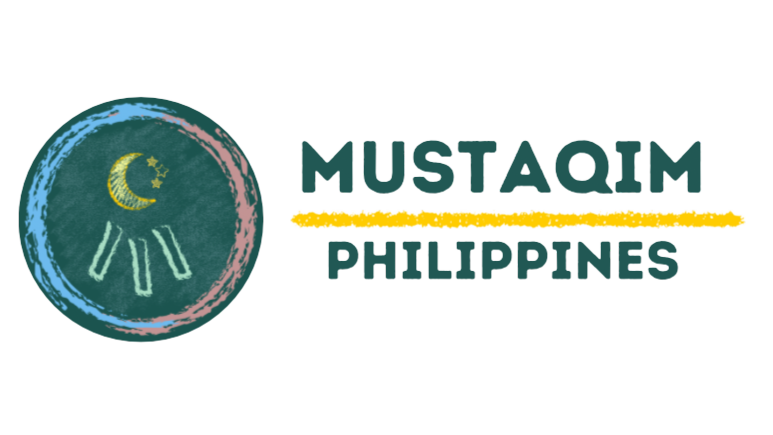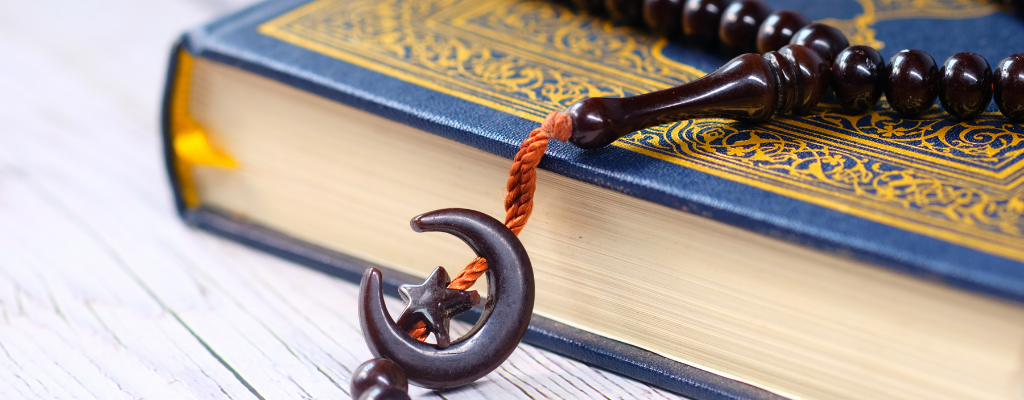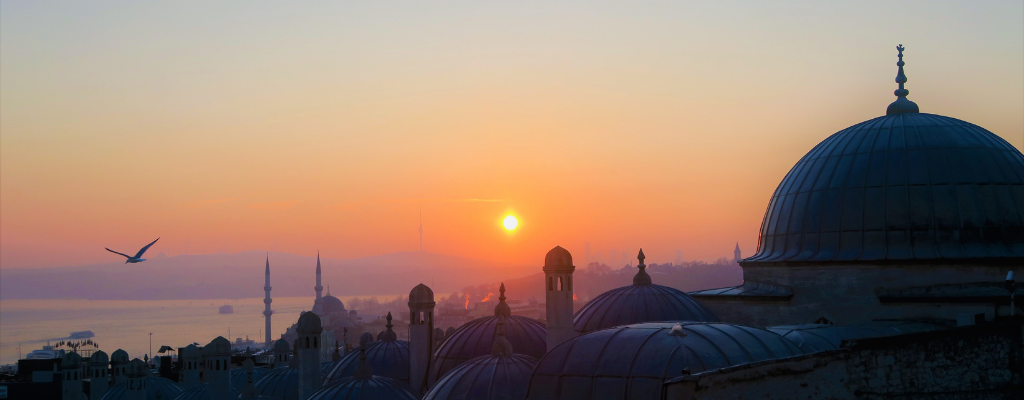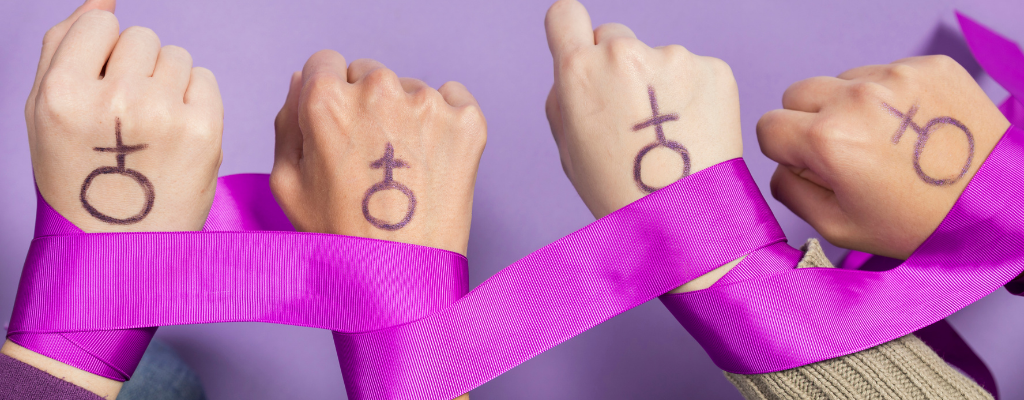NCMF North Luzon and Baguio Muslim Association (BMA) Participates in the 2022 Panagbenga Festival
The NCMF North Luzon, headed by Regional Director Atty. Raihanah Sarah T. Macarimpas, together with NCMF Admin. Director Abdullah Macarimpas and Baguio Muslim Association (BMA) , took part in the 2022 Baguio City Panagbenga Festival and Session Road in Bloom from March 21 to 27, 2022. Said event was in collaboration with the Baguio Country Club with its General Manager Anthony De Leon, CFBE and Session Road in Bloom 2022 Chairperson Mary Lou Galiste.
NCMF Bureau of External Relations shared this news in its FB page and highlighted the successful endorsement to the Baguio Country Club of 20 Muslim Filipino small- scale entrepreneurs in securing their slots for the Session in Bloom. It aims to help them recover from the financial or economic losses that were brought about by the COVID-19 pandemic.
The NCMF and Secretary Guiling A. Mamondiong thanked Baguio City Mayor Benjamin Magalong, Baguio Country Club, GM Anthony de Leon, Ms. Mary Lou Galiste, Mr. Abdullah Mastura, Mr. Glenn Gaerlan, and the University of Baguio Graces Dance Troupe for their invaluable aid and support.
2 + 2 Talks between Japan and the Philippines to Strengthen Cooperation
On April 9, 2022, the Philippines and Japan held the 2+2 talks in Tokyo to strengthen both the country’s cooperation, especially on strengthening both the overall defense relations of the two nations.
The Philippine News Agency reported the two nations' foreign and defense ministers agreed to increase engagements through capacity and capability building, transfer of more defense equipment and technology, and continuous cooperation on previously-transferred defense equipment, among others.
According to the Japanese Ministry of Foreign Affairs, the two nations are likewise poised to "start considering" frameworks to facilitate reciprocal visits as well as reciprocal provision of supplies and services to boost Japan Self-Defense Forces and the Armed Forces of the Philippines's partnership.
"Going forward, the Japanese side will proceed with deliberations, including on the possibilities of concluding a reciprocal access agreement and an acquisition and cross-servicing agreement," it said.
In a joint statement released by the Philippines, the four ministers also agreed to enhance cooperation in the Sulu-Celebes Seas and their surrounding areas in the fields of maritime safety, connectivity enhancement, human resources development, anti-piracy, counterterrorism, and prevention of violent extremism.
They also reaffirmed the importance of support to the Mindanao peace process.
Further, they decided to strengthen bilateral cooperation in promoting economic security after collectively opposing "economic coercion" as means to achieve political ends.
The 2+2 Talks in Tokyo was described as a significant milestone that laid the groundwork for the next decade of the two nations' decade-old strategic partnership.
"We have achieved a substantive clarification of all the issues and in many of them produced consensus. The security ties we are developing are much less than those of an alliance but much more than a cordial relationship," Foreign Affairs Secretary Teodoro Locsin Jr. said in his closing remarks.
Locsin is joined by Defense Secretary Delfin Lorenzana, Japanese Foreign Minister Yoshimasa Hayashi, and Japanese Defense Minister Nobuo Kishi during the talks.
Source: Philippine News Agency
Younus Abdullah Muhammad - Former Violent Extremist who led CVE
Former violent extremist and jihadist late Jesse Morton, who adopted the Arabic name Younus Abdullah Muhammad when he was recruited by a fellow detainee who was a violent extremist, discussed with the International Development News or DEVEX, his insights and efforts on CVE, a year before his death in December 2021.
As a former violent extremist and described as “one of the most prolific recruiters for Al Qaeda” by The New York Times, Younus emphasized “To interact with extremist networks, you have to build a network that is antithetical to hate and extremism.”
During his time in prison and after he decided to work with the FBI on CVE, Younus founded the organization “Parallel Networks”, a Virginia-based nonprofit that works on CVE around the world and where Younus was executive director, speaks directly to his own example as a former extremist recruiter who — when given an opportunity to do so — was able to find and describe a path out of that worldview.
In the interview released by the DEVEX, “A ‘parallel network’ is based on the notion that you can't feed into an ‘us versus them’ divide by taking sides in conflict, that you have to … attack a problem at a higher order of consciousness than that which creates it,” Younus said.
That necessitates a holistic approach, one more in line with public health interventions than what has characterized a lot of CVE efforts in the past, Younus said. It also requires those seeking to counter violent extremism to reject a “clash of civilizations” mindset that imagines extremists as theological or ideological enemies, he said.
“You can't argue with a theological message so much as you have to realize that extremists belong to groups, and they join groups because everybody has a need for group belonging. If you don't create a group that they can belong to as an alternative to those that are advocating for violent extremism, then you can't fulfill those needs,” he said.
“All of the empirical evidence in the field suggests that you've got to find the right influencers and you have to get them to believe and work with them in partnership, and that they should be responsible for a large portion of the implementation,” he said.
“The first step is to craft a vision and make sure that vision is not just some idealistic notions about the superiority of democracy and human rights, but to get practices that embody them and to make sure that you don't say what you don't do,” he said.
For the complete interview, follow and click this link:
https://www.devex.com/news/a-former-jihadi-on-what-countering-violent-extremism-gets-wrong-102514
Consultative Assembly with the Balik-Islam to Strengthen their Role and Representation in the Muslim Community
The National Commission on Muslim Filipinos (NCMF) Bureau of External Relations reported on March 24, the conduct of the first ever consultative assembly for the Davao del Sur Balik-Islam community held at the Megan Function Hall, Digos City, Davao del Sur. This was made possible by the NCMF-Davao del Sur Field Office, headed by Regional Director Sherrila Porza-Sawah, through CAD Chief Sami Buat and NCMF-DavSur Provincial Director Jalina Dejos.
Said assembly was attended by Balik-Islam members coming from different communities and barangays in the municipalities and City of Davao del Sur. The activity aimed to establish proper recognition and mainstreaming of the Balik-Islam and strengthening their role in the Muslim community. This also aims to make the Balik-Islam properly represented and engaged in the existing institutions and programs for the development of Muslim communities.
During the assembly, the current issues and concerns affecting the Balik-Islam were identified and raised. They also passed and adopted some recommendations and measures in the form of resolutions including some action plans during the plenary.
The Davao Sur Muslim Reverts Coordinating Council was organized, composed of 15 members representing different barangay/communities.
This activity is part of the Tri-Partite Convergence mechanisms for Davao del Sur Muslim Communities funded through the Support for Muslim Communities of Davao del Sur under present administration led by Governor Marc Cagas, and implemented and facilitated by the NCMF in cooperation and coordination of Salam-Davao Sur/DavSur Muslim Leaders Coordinating Council.
Source: https://www.facebook.com/BERncmf
BARMM Youthled Project in Zamboanga City in February 2022
On February 21 to 24 2022, a seminar/workshop on BARMM’s Youth Leadership for Democracy (YouthLed) Project was held in Palacio Del Sur, Zamboanga City which was attended by 38 appointed representatives of 191 youth organizations nationwide.
To note, YouthLed is a five-year program that aims to increase civic engagement leading to strengthened participation in Democratic Governance. The program is composed of leadership development, coalition-building, and civic education and engagement activities among young Filipinos, aged 15 to 30. YouthLed’s approach is anchored on the principles of Positive Youth Development, creating an enabling and productive environment for the youth.
During the 4-day seminar, the focal persons in the Sulu YouthLed network actively discussed their vision in Sulu which is for the youth to be an integral part in nation-building and for them to have a bigger role in the global context; for the elections to be transparent and peaceful and its results should hopefully help the future generations; and for education to transform the Bangsamoro youth into a more advanced and morally guided individuals. They also discussed that violent extremism may be curbed among the youth through the availability of proper education and livelihood training, and opportunities to earn a living. They also urged the youth to learn about food, agriculture, and fisheries because Mindanao, especially Sulu, is extremely rich in natural resources.
Malaysia’s One-Stop Portal on Everything CVE
The Edge Markets Malaysia reported that mycveguide.com, Malaysia’s one-stop portal on all things related to terrorism and violent extremism, was launched on March 04, 2022. This effort is in line with the country’s National Action Plan (NAP) on Preventing and Countering Violent Extremism (PCVE) 2022 - 2026.
During the launching of said website, Deputy Foreign Minister Datuk Kamarudin Jaffar said the web portal is vital to support and ensure the viability of the NAP PCVE.
“The portal would act as a platform for all researchers and practitioners to the original PCVE content, as well as secondary sources such as news, webinars, training, engagements, research, and resources among others.
“It will also serve the role of a style guide to help familiarize policymakers, researchers, practitioners, students and members of the public with the CVE (Countering Violent Extremism) sector in security and public safety,” he said.
His speech was read out by director-general of South East Asia Regional Centre for Counter Terrorism (SEARCCT) Datuk Ganeson Sivagurunathan at the launching of the web portal and viewing of CVE video campaign here.
Minister Kamarudin said a combination of hard and soft approaches is required in the NAP PCVE consisting of law enforcement; deradicalisation, rehabilitation and reintegration; education, engagement and outreach to society and vulnerable groups.
“To fulfil Malaysia’s PCVE commitment, the Ministry of Home Affairs was entrusted to develop and prepare the PCVE National Plan for 2022-2025 for Malaysia.
"The plan is expected to provide a clear direction; a comprehensive set of implementing strategies, objectives, initiatives and indicators; and as a result to contribute to the security and public safety of the country.
"The Ministry of Foreign Affairs or Wisma Putra will also be eager to play its role for the plan,” he said
He also congratulated the joint event organizers and project collaborators, namely the International Institute of Islamic Thought and Civilisation and the International Islamic University Malaysia (ISTAC-IIUM), the United States Embassy in Kuala Lumpur, Malaysia Press Institute (MPI), SEARCCT and Universiti Sains Malaysia.
On the other hand, he said the web portal’s collaboration with MPI is also meant to educate journalists to responsibly report or write on violent extremism and terrorism.
“The portal would inform, engage and train journalists with the objectives of using facts and avoid bias, using proper terminology related to Counter Terrorism (CT) or CVE, to also include a wide range of voices as well as to avoid inflammatory content,” he said.
Meanwhile, the US Ambassador to Malaysia, Brian D. McFeeters, in his speech, expressed his gratitude to other collaboration members for working together in countering the threats of violent extremism.
“The US Embassy is an active partner for Malaysia and fully committed to developing strategies and initiatives to address this issue,” he said.
Source: https://www.theedgemarkets.com/article/onestop-portal-countering-extremism-and-terrorism-launched
ASG Widows Discourage Women from supporting Terrorist Groups
In an interview with ASG widows from Caluang and Indanan, they shared their painful experiences and hardships in the hands of their ASG husbands and living with said terrorist group.
Hanina and Hamina are both widows of slain ASG members. During the interview conducted last December 2021, they have expressed relief knowing that they are already free from the tentacles of the ASG and are not being hunted down and targeted by the government.
Among other things, the fear that they felt while with their husbands and the ASG was unimaginable. They said their life was spent in forests, hidden from the community, where they experience scarcity of water and food.
They have admitted the practice wherein the sons of slain ASG members replace their fathers, which results in these youth having no direction in life, and later on, falling into the trap of false heroism and propaganda by the ASG. However, the mothers of these recruited youth continue to convince their children to leave said group for a brighter future.
The role of mothers and women in PVE is vital. That is why Hanina and Hamina discourage women from supporting terrorists groups and marrying their members. Aside from exploiting and utilizing women, they are also destroying the lives and future of their own children.
Muslims Voting in the Philippines
This topic may seem like a controversial Islamic issue but there is a need to discuss the subject in order to understand Islamic context of Muslims voting in elections. Our main reference for this article is the Filipino Society as a country practicing democracy and has unique political dynamics. What will be discussed here may be applicable to other countries or maybe not but our focus is the political system in the Philippines.
The first thing that needs to be considered is that the Philippine political system is not Shariah. Voting in its original form is prohibited. However, Filipino Muslims are living in a non-Muslim country. This situation made Islamic Scholars to lay guidelines to those Muslims living in countries practicing democracy, specifically the Philippines. This is what they called “Mafasid As-Sharia” which is part of the Sharia Objectives.
In this principle, Mujtahids understand or interpret the text of Sharia to derive solutions to contemporary problems faced by Muslims. This concept provides a clear guidance and framework to the process of Ijtihad in solving the issues conforming to the human interest while complying with the will of Allah. From this principles, Muslim Filipino scholars said that voting is essential to the Muslim community because it will benefit them than not participating in the voting process. They reiterated that choosing the right person to govern them is more important than letting the elections be done without doing nothing.
Al-Izz bin Abdul Salam claims that “the greatest of all the objectives of the Qur-an is to facilitate benefits (masalih) and the means that secure them and that the realization of benefit also included the prevention of harm”[1] Al-Ghazali believes that the major purpose of Shariah law is to “safeguard‟ or preserve those essentials, which eventually bring benefit for human life.[2]
This is where Filipino Muslim Scholars and even Shaykh Muhammad Ibn Uthaymeen of Saudi Arabia derived their ruling on the necessity of voting in elections. This is to safeguard and preserve Muslim existence and rights in the Philippines.
Those who accused Filipino Muslims who joined the election as Kafir, be careful of your words, as you do not know their positions and situation. This may even destroy your Iman. It was reported in the Two Sahih (authentic) Books of Hadith (i.e. Al-Bukhari and Muslim) on the authority of Ibn `Umar (may Allah be pleased with him) that the Messenger of Allah (peace be upon him) stated, When a person calls his brother (in Islam) a Kafir, one of them will certainly deserve the title. If the addressee is so as he has asserted, the Kufr of the addressee is confirmed, but if it is untrue, it will revert to him (the sayer).
Also, there is another Hadith reported on the authority of Abu Dhar (may Allah be pleased with him), that he heard the Prophet (peace be upon him) stating, If anyone accuses another of Kufr or calls him the enemy of Allah, such an accusation will revert to the accuser if the accused is innocent.
It was mentioned in Sahih Muslim in the Hadith reported on the authority of Jundub ibn `Abdullah (may Allah be pleased with him) that the Messenger of Allah (peace be upon him) stated, A man said, "By Allah! Allah will not forgive so-and-so!" Allah said, "Who is that who takes an oath in My Name that I will not forgive so-and-so? I have forgiven him and rendered your good deeds fruitless."
Thus, your accusation of Muslims who are safeguarding their rights as Kafir is haram and it may destroy your identity as Muslim. Be careful.
[1] Al-Obeidi, Hammadi (1992). al-Shatibi wa Maqa asid al-Syariah (al-Shatibi and Maqasid alShari‟ah). Tripoli : Mansyurat Kulliyyah ad-Da‟wa al-Islamiyyah, p. 132.
[2] Al-Ghazali, Op. Cit., vol. 1, pp. 286-7
The Real Conditions of Muslims in the Philippines
This article will talk about the real conditions of Filipino Muslims in the Philippines, and whether they are oppressed or not. This is a response to the claims of some terrorist groups and violent extremists that Muslims are continuously being persecuted in their respective countries by non-Muslims and man-made governments.
Muslims in the Philippines are hand in hand living peacefully with the Catholic majority. From Mindanao as the place of origin, some Muslims migrated to Visayas and Luzon to seek business opportunities and education. Because of peculiarities in religion and culture, some Muslims were discriminated. It goes without saying that discrimination against Muslims are not entirely perpetrated by the government alone. More often than not, it is individuals that perpetuate this divide. As a matter of fact, the Revised Penal Code of the Philippines criminalizes certain acts that violate religious freedom including Article 132 or the Interruption of Religious Worship and Article 133 or Offending Against Religious Feelings. Some other regions and cities in Metro Manila also imposes local laws to prevent religious discrimination in employment. Presidential decree 1083 also known as the Code of Muslim Personal laws was signed in to law to allow Muslims in performing some of their religious practices. Currently, President Rodrigo Duterte signed the Bangsamoro Organic Law (BOL) resulting in the creation of Bangsamoro Autonomous Region in Muslim Mindanao (BARMM).
These evidences show that Filipino Muslims are not oppressed in the Philippines contrary to the propaganda of terrorists. The government has been promptly addressing issues and challenges faced among the Filipino Muslims.
Moreover, Filipino Muslims are not exempted to Philippine law when committing a crime and the government has the authority to maintain peace and order in the country. Muslims are generally obliged to abide by the laws of the land in the country they live in, whether it is a Muslim country, or non-Muslim country as long as they are not ordered to practice something against Islam. If they are forced by the law to commit a sin, then in such a case, it will not just be unnecessary, but irresponsible to abide by said law.
However, some Muslims were convicted of committing a crime including terrorism. It is necessary to highlight that they are being punished in prisons not because of their religion but because they committed terrorist activities. Supporting them is haram or forbidden, and this also gives justice to all the victims.
“Indeed, Allah commands justice, grace, as well as courtesy to close relatives. He forbids indecency, wickedness and aggression. He instructs you so perhaps you will be mindful.” (An-Nahl 90)
Keeping them in prison is not a form of oppression but protection of society. It has never been singled out by the government that Muslims should be put in prisons but it is clear that those who are put in jails have committed a crime.
Let this article be a clear reminder to all Filipinos of the real situation of Filipino Muslims in our country.
Empowering Women in Preventing Violent Extremism
The role of women in society is extraordinary. In different fields, they excel, they use their time to contribute to nation-building activities, family, and even in peace-building. The contribution of women and their skills are vital in every aspect of life. That is why terrorist groups also exploit women to advance their agenda and achieve their goals of spreading fear among the populace.
In relation to this, women are continuously being used by extremist groups, like the Maute-ISIS in Mindanao during the Marawi Siege and in some other terrorism-related activities such as financial and logistical support. This serves as a manifestation and eye-opener to the government that in these changing times, females take up essential roles in violent extremist environments which are mostly dominated by men. But the lack of data and research in relation to women’s involvement in violent extremism and their key roles becomes a burden for policy makers and PCVE initiators to have a wider view to the problem. To further the study in data and research about women’s involvement in extremism, Kiriloi M. Ingram of Lawfare blog published his research and findings in relation to this topic like the Islamic State’s propaganda to women, their recruitment, roles, and women empowerment as information guide to women’s role in extremism.
In Ingram’s findings on how propaganda propagates extremism to women, he highlighted the false portrayal of women used by ISIS to inculcate the “strategic logic” that can appeal to all genders for them to get an approval. The ISIS uses different archetypes to portray women based on their standard to be imitated like “supporters,” “fighters,” “corruptor,” “fighter,” and “victim.” ISIS also uses these archetypes to remodel women’s belief into their ideology, mixing it with alignment to the Quran to become more convincing to attract women to their ranks. With this scenario, women most likely become “fighters” or less fall into “supporters.” The archetypes used by ISIS are interchangeably depending on the needs and capability of their recruits.
In terms of recruitment, ISIS exploits the poverty, financial instability, and lack of education issues among its recruits. Highlighting these major problems may attract women to change their view and to join their ranks. For instance, local women are recruited as fighters by exploiting their capabilities in combat because they can focus longer and have steadier hands. On the other hand, ISIS promised PhP30,000.00 to 40,000.00 pesos to women if their children joined their ranks. Aside from these, women are also being used to recruit men, serve as a fundraiser to some terrorist organizations, and exploit their family members to join also.
About the involvement of women in extremist recruitment, they feel voiceless and powerless. This issue may have been a religious factor exploited by extremist groups to influence them about their capabilities to join in their cause. This somehow empowers women in wrong motivation (leading to terrorism) that they are able to do things and contribute to the society and to their terrorist organization which they belong after recruitment. Moreover, the weaknesses of women (voiceless and powerless) are the main target of terrorist groups using violence to divide them and not to raise up against them. This is somehow one of the factors why women do not speak up in the community when terrorist threat arises.
Overall, the studies of Ingram came up in bringing the “Four Pillars for Women Empowerment,” a capacity-building program, which served as solutions to women’s involvement in violent extremism. According to her, these are: access to workshops, presented in the vernacular, that provide them with an understanding of (a) trends in violent extremist propaganda and recruitment strategies targeting women, (b) broad principles for effective civil society P/CVE program design, and (c) the experiences of other women via case studies and opportunities to network and engage with other local women; Messaging and narrative-driven actions must promote alternative gender roles to the five female archetypes and use female-led actions synchronized with messaging (i.e., narrative-driven actions) to empower women in affected communities; Messaging must be designed to persuade the local audience, particularly those the programming is designed to target; and the establishment of grassroots women’s networks (organizations, groups, etc.).
In the end, the role of women is vital in peacebuilding and in deterring the threat of terrorism and extremism. With their inclusion in PCVE programs and by empowering them, they can impart more in decision making, peace talks, and even in preventing and countering violent extremism programs that can help our nations and the world.










